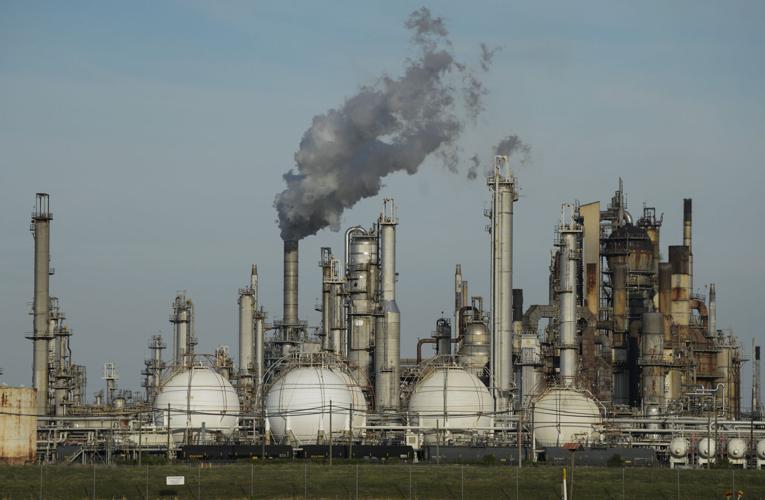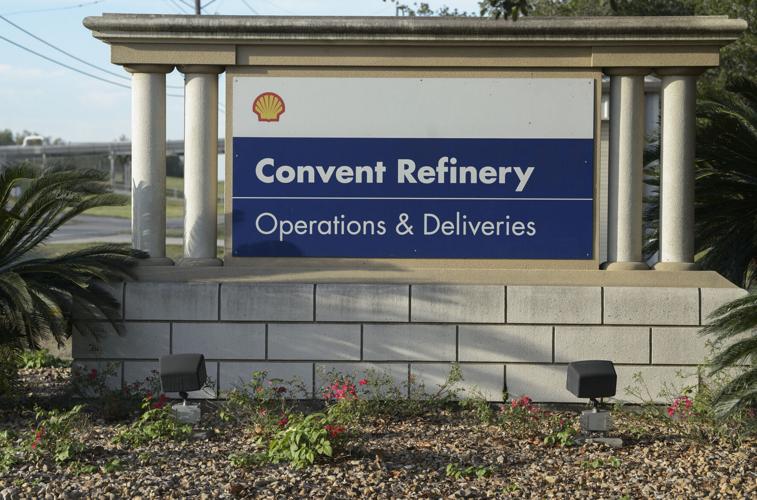In November 2020, Shell Oil — then St. James Parish's largest taxpayer and employer — announced it would be shutting its large Mississippi River oil refinery in Convent.
With 1,100 employees and contractors and steady activity that generated millions in sales tax collections annually, the refinery built in the late 1960s had been a steady catalyst for the rural parish's economy and a key source for government coffers for years.
Now, nearly four years later, St. James Parish government officials say they are feeling the effect despite attempts at saving money.
They will be asking voters April 27 to adopt a new 6-mill property tax to staunch the bleeding in the parish's solid waste fund. The tax would not cost most homeowners more money because trash user fees would end both inside Lutcher and Gramercy and also in St. James' unincorporated areas.
The majority of the tax, 4 mills, will be dedicated to solid waste collection and related services, according to ballot language. The remaining 2 mills will support roads, bridges, animal control and recreation.
The full 10-year tax is expected to generate $4.1 million annually, with about $2.7 million for trash service that is expected to fully cover the cost of the parish and municipal contract with provider Waste Management.
Currently, residents in unincorporated St. James pay a $5.30 monthly user fee for twice-per-week trash pickup, but most of the costs are subsidized by a quarter of the 1-cent sales tax collected in the unincorporated parish.
Parish President Pete Dufresne said the loss of Shell has hurt sales tax collections, while inflation has made operations more expensive.
After hitting nearly $2.1 million in 2019, the share of sales tax dedicated to trash has slipped, generating $1.4 million in 2022 before a slight uptick to $1.63 million in 2023, parish figures show.
Parish officials say the current sales tax levels are close to what was collected a decade earlier. All trash revenues combined haven't kept up with expenses in solid waste since 2020, according to parish figures, as annual deficits in solid waste have been whittling down the fund surplus.
Parish officials have put the election stakes in stark terms. Without the new tax, the solid waste fund could be virtually bankrupt in two years. Officials would have to cut services or quintuple parish rates to $25 per month.
"How can you continue to operate a decade later on the same revenue you were receiving that long ago?" Dufresne asked during a recent town hall in Paulina. "Could you do it at your home? I don't think so. We need come up with something better if we want to continue the same services that we enjoy so much every day."
Saving via tax increase?
The Parish Council and Dufresne, a second-term Democrat and a farmer and businessman by career, have also put forward a plan to soften the blow for residents while counting on industry to pay 75% of the bill.
If the new tax passes, parish officials are proposing to eliminate the trash user fee and, for all but three residents anywhere in St. James, homeowners would pay less in new additional property tax than they have been paying in trash user fees annually, according to parish estimates.
The average home in St. James had a market value of $146,500 in 2023, according to estimates parish officials obtained from the assessor.
For a home with that value and homestead exemption, the proposed millage increase will cost an extra $3.58 per month in taxes, or $43 annually. But that's $20 per year less than current trash user fees in unincorporated St. James.
The towns of Gramercy and Lutcher share the same contract with Waste Management, but town residents don't have the parish sales tax subsidy.
They pay higher monthly fees, so their annual net savings would be far greater under the tax plan, parish estimates show.
Using the average 2023 home value again, Gramercy homeowners' net savings would be $197 per year if the new property tax were passed. Lutcher homeowners' net savings would be $143 per year.
The net savings for homeowners would decrease as home market values rise, but, according to parish estimates, a home would have to have a value of more than $575,000 before a homeowner would see a net annual increase through the proposed switch from trash fees to property taxes.
Is spending the problem?
Some critics, however, say parish officials haven't been telling the whole story in pitching the tax increase.
They argue the problem with the solid waste fund is really overspending that came after Shell announced its closure and shortly after a revenue peak when parish sales tax collections had been flush during an industrial building boom.
Budget records show the parish has added staff and some equipment, in addition to cost increases in the parish contract with Waste Management and other expenses.
Critics also argued the savings promised homeowners also ignores the higher cost to small businesses, which don't have homestead exemption, and they object to having property owners fully finance a service they say users should pay.
"Garbage service should be based on a user fee, not an ad valorem property tax, treated the same as other utilities such as water, gas, and electric," said Laddie Roussel, a critic of Dufresne's administration. "And, if there are justifiable cost increases, those should be reflected in adjusted users’ fees. It’s a service; you use it, you pay for it."
An analysis of the parish's finances that raised these and other concerns was recently referenced in an front page editorial by the News Examiner-Enterprise, a local newspaper in St. James that carries political weight in the community.
The full analysis speculates sales tax collections could be starting a rebound in 2023.
Dufresne disputes these claims as a misunderstanding of the parish's financial records and a failure to recognize that parish government is dealing with higher inflation like everyone else.
In the community meeting Thursday night, Dufresne and area Councilman Ryan Louque attempted to address these criticisms.
Dufresne pointed out that some of the added staff in solid waste were really preexisting tree limb pickup crews who had been paid under different budgetary funds in past years and were shifted more recently to the dedicated solid waste fund, where they legally belonged.
A few others were new employees, four litter abatement crew members who had been requested by the previous council.
"Should this millage not pass, that's going to have to be one of the first things we're going to have cut," he said.
Parish solid waste also offers transfer stations and other services that could be cut if the tax fails, Dufresne said.
Early voting began Saturday and ends April 20.



